Lame ducks Biden and Kishida and weakened Modi and Albanese meet to do nothing at the Quad

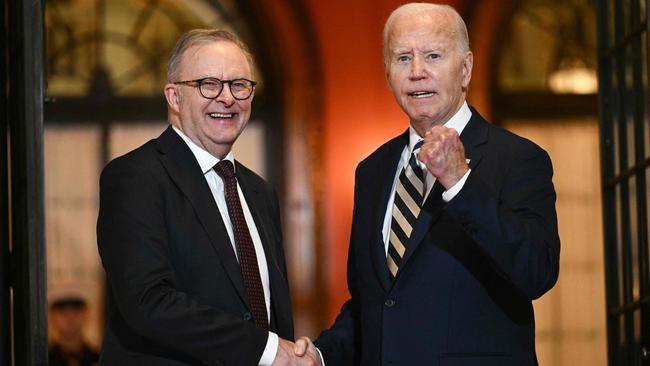
Four immensely diminished leaders met to do, and say, almost nothing.
US President Joe Biden is the lamest of lame ducks. Japan’s Prime Minister, Fumio Kishida, is about to retire. Narendra Modi, still by far the strongest of the four, now leads a weakened government after losing his absolute parliamentary majority at the last Indian election.
And Australia’s Anthony Albanese, struggling in the polls and facing an imminent election, is now practising diplomacy and international security along the lines of the three wise monkeys: see no evil, hear no evil, speak no evil.
The problem is, the three wise monkeys approach doesn’t cut much mustard in constraining Chinese aggression in the Indo-Pacific.
Biden gave the game away in his hot mic moment when, thinking he was off camera and not being recorded, he declared to his three amigos that China was “testing us” and buying time to “aggressively” pursue its national interests.
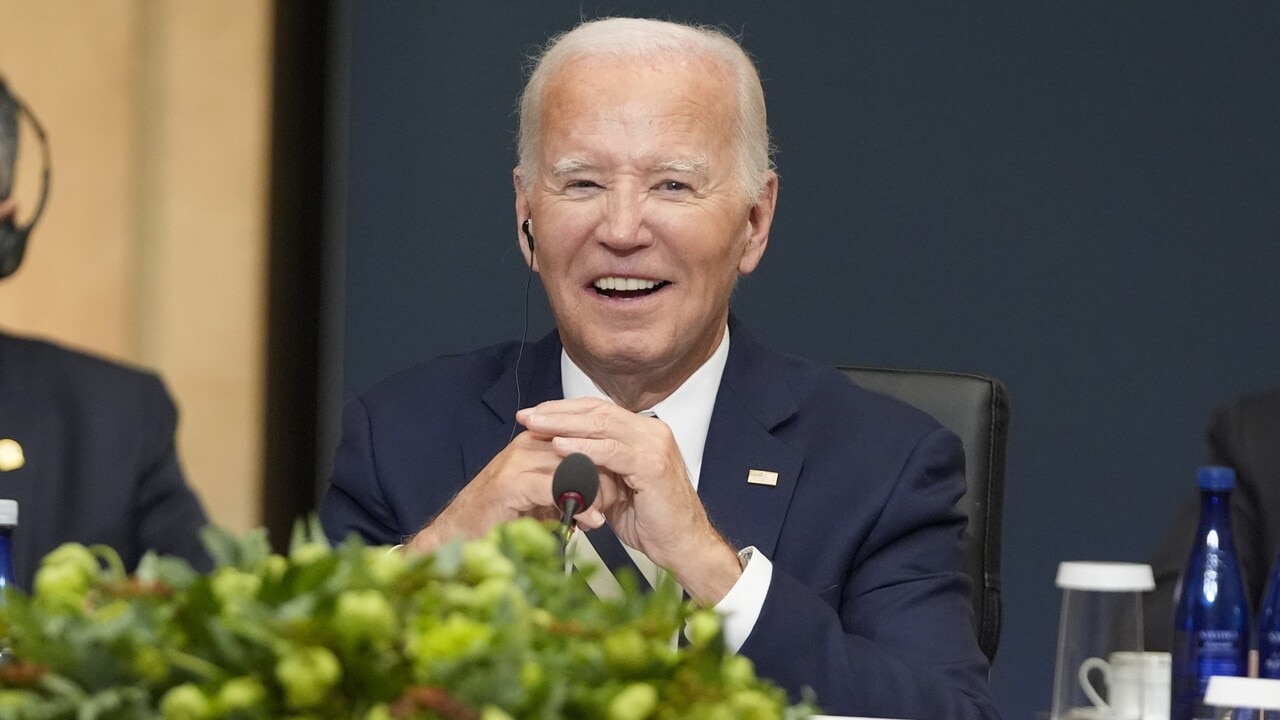
The Quad leaders’ statement, though deploring all manner of aggressive and dangerous actions in areas like the South China Sea, didn’t mention China by name.
It’s as though aggressive and dangerous naval and air force manoeuvres, the illegal seizing of islands, the militarisation of seized and artificially created islands, and all the rest are like a bad weather system, with no identifiable cause, certainly no one to be held responsible, unless perhaps it’s climate change, the villain of all purpose?
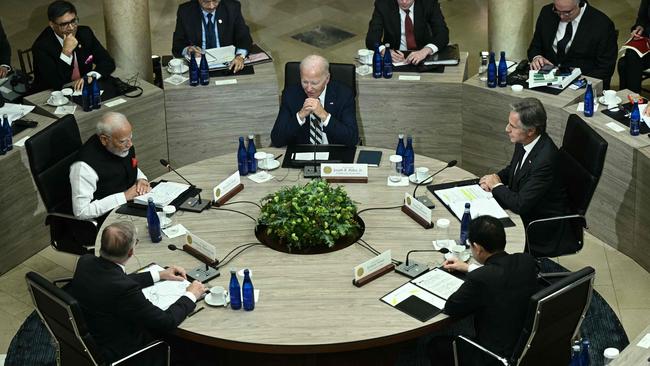
Quad officials even claimed, with heroic and magnificent disregard for the truth, that the Quad was not directed at any other one single nation.
Here is a certain simple but profound contradiction: if the Quad is to be strong enough to prevent Beijing from militarily dominating the region but is too weak to mention China by name, why should anyone have real confidence about its strength?
It’s true that the Quad first came into existence in order to cope at speed with the Asian tsunami of 2004, but it quickly evolved into a security focused group.
Michael Shoebridge of Strategic Analysis Australia points out some of the initiatives announced by the Quad in Delaware are utterly microscopic, such as the US considering giving $1.5m to the World Bank, a sum of money equivalent in worth to a less than the price of family home in an outer-ring suburb in Sydney.
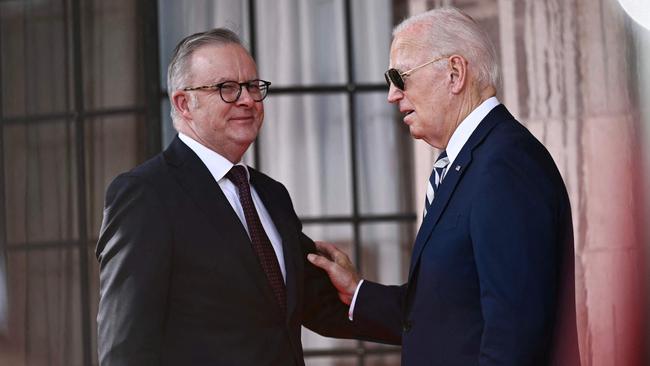
Similarly the Quad is now getting involved, albeit in a miserly way, with various good works, such as cancer research. But no one is seriously looking to the Quad to cure cancer. They are looking to it to have an effect on regional security.
Japan and to a lesser extent India have wanted the Quad to amount to something. The US has an institutional position of this kind as well, although this is offset to some extent by the dithering ineffectiveness of Biden and his recent investment in another round of meaningless personal diplomacy with the Chinese leadership.
Paradoxically, Canberra under the Albanese government has been leading the go-slow movement.
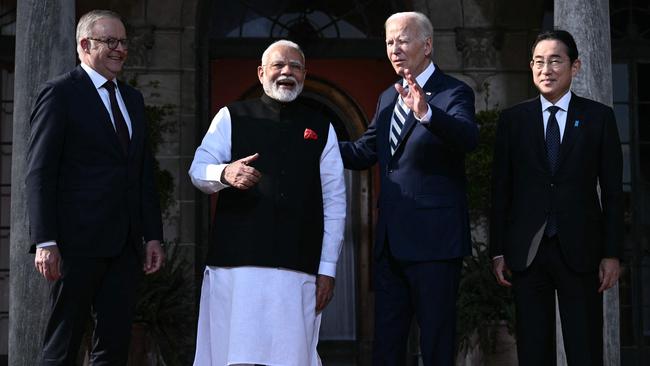
At regional gatherings to ponder the Quad’s future, the Japanese will sometimes emphasise further naval joint actions. The Australian representative most typically says that Quad partners must go to ASEAN and ask ASEAN what it would like the Quad to do.
ASEAN in a way is a good thing, but ASEAN-centric security structures have comprehensively failed in the region. Asking ASEAN – which moves only by consensus and a couple of whose members are completely dominated by Beijing – what to do is another way of saying you don’t want to do anything.
Which is just as well, because at the rate the Albanese government is letting the Australian Defence Force radically decline in capability, there’s almost nothing that we can do.
This Quad pioneered greater coast guard co-operation among its four members, but our tiny Border Force is overwhelmed already by its current security task and certainly has no room to expand.
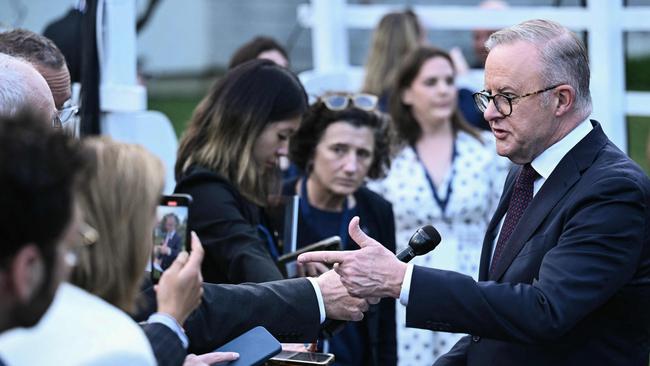
Meanwhile, nobody knows what future role our new Offshore Patrol Vessels might play. Though built at great expense, not one has yet been accepted into service by the navy. In a characteristic demonstration of Australia’s defence incoherence, our OPVs, if they ever come into service, are as a big as a light frigate but carry effectively no weapons and do not have battle-worthy hulls.
The Albanese Government is all hat and no cattle in all security matters.
Alas, the Quad is now emulating this lamentable example. Nonetheless, it’s good that it still exists, even in this twilight incarnation. Perhaps a new American president, and a new Japanese prime minister, might breathe some life back into it.

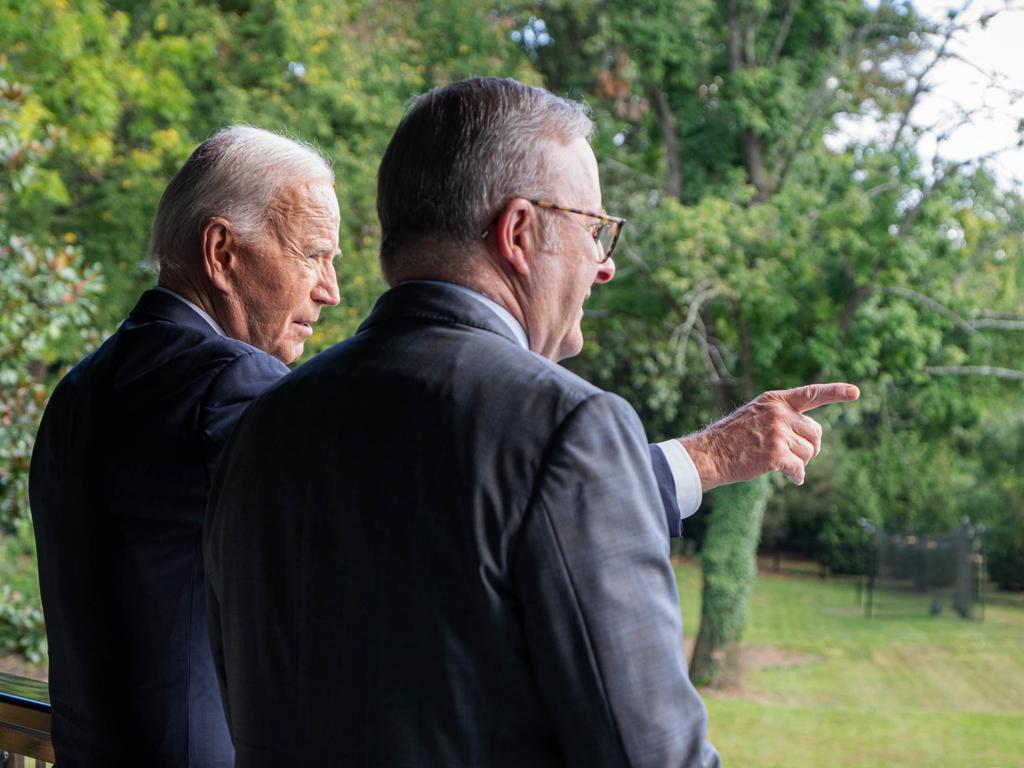
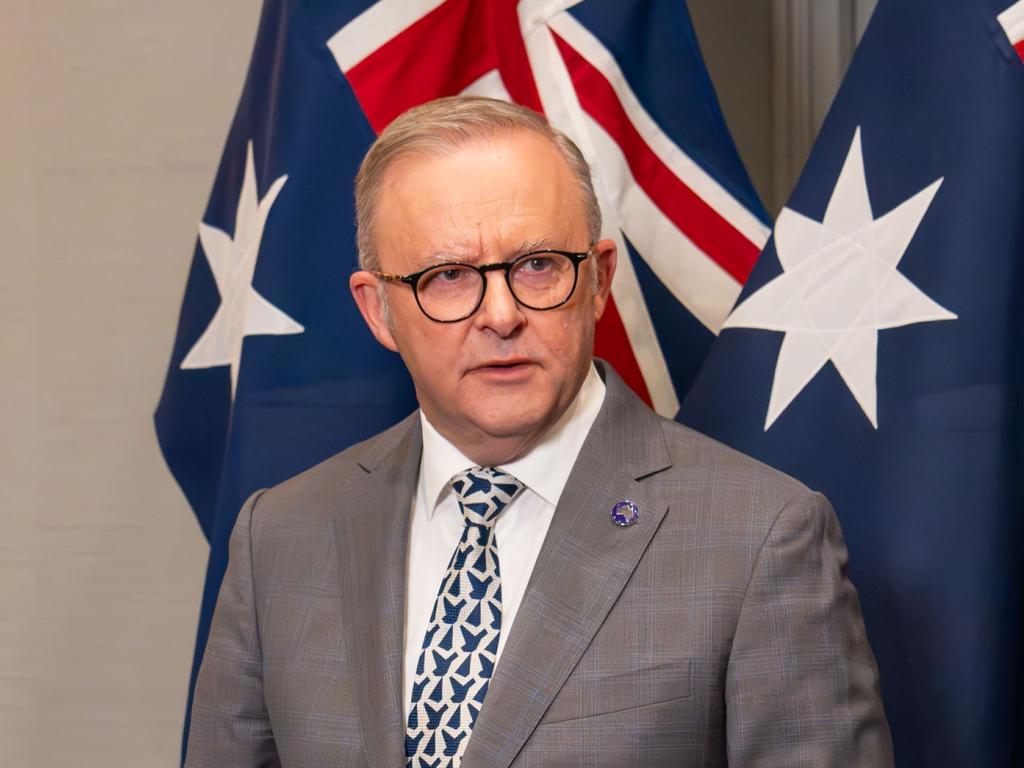


The Quadrilateral leaders’ summit in Delaware has broadcast a loud and resounding message of weakness, timidity, irresolution and pervasive lameness.